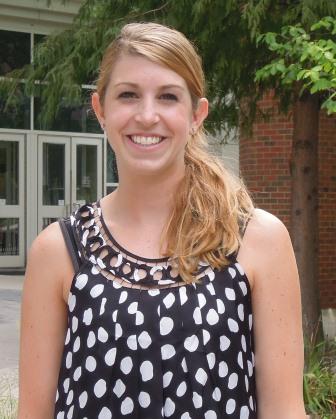LAUREN GRIFFIN MASSO
CAPSTONE
Capstone Project Committee: Kristin Paulyson Nunez, M.S., CGC; Scott Richter, Ph.D.; Randi Stewart, M.S., CGC, Deborah Wells, M.S., CGC
Introduction: Previous research has demonstrated the complexity of the decision-making process in a prenatal setting. The clinical introduction of Noninvasive Prenatal Testing (NIPT) has further increased this complexity.
Purpose: We sought to examine the decision-making process and determine what testing/screening options are offered to our patient population; what options patients selected; what factors influence patients’ decisions; how these factors differ among demographic groups; and what potential barriers disrupt decision-making versus factors that facilitate the process.
Methods: Participants were recruited by genetic counselors at Duke Medical Center from three clinic sites. Inclusion criteria were English-speaking patients 18 or older who received genetic counseling and were offered one or more prenatal screening/testing options. Quantitative data was analyzed in SPSS using the Wilcoxon rank sum test, Spearman’s bivariate nonparametric correlation and the chi-square test; qualitative data was coded and analyzed to identify themes.
Results: Sixty-five women participated in our study. NIPT was selected by 34.5% of participants, ultrasound only by 32.7%, first trimester screening by 23.6%, CVS by 1.8%, and 7.3% had not yet made a decision. Safety/risk to the fetus, accuracy of the test, and ability to provide information early in the pregnancy were listed as important factors by the most participants. Comparing women who chose first trimester screening versus NIPT, there was a statistically significant difference in the ranking of cost/insurance coverage (p=0.027). Factors that made the decision-making process easier included personal experiences, influence of external individuals, and specifics of the test. The process was made more difficult by concerns about stress or worry and cost/insurance coverage for the testing.
Conclusions: Women consider many factors when deciding about prenatal testing.Aside from income level, most demographic factors did not predict screening/testing option chosen. Information was viewed as valuable to most participants, regardless of opinions towards pregnancy termination. Most participants felt meeting with a genetic counselor was helpful, they received the necessary information to make a decision, and felt they made the best decisions for their pregnancy.
Since Graduation

After falling in love with North Carolina while at UNCG, Lauren made the state her permanent home and has been working at the Women’s Institute at Atrium Health in Charlotte since 2014, supporting pregnant and preconception patients in a busy MFM clinic. She enjoys serving as a supervisor for GC students, working primarily with students from the University of South Carolina. With the announcement of Atrium’s partnership with Wake Forest Baptist Health and the creation of a medical school in Charlotte, Lauren is looking forward to expanded opportunities to work with students and other learners.
Lauren and her husband, PJ, bought their house in 2016 and have just about completed renovations on almost every room, which PJ did on his own. After living without a functioning kitchen for 6 months, Lauren is happy to say they came out stronger on the other end but have no plans to do that again! They adopted a dog, Chloe, in 2017, and welcomed their daughter, Sydney, in 2020. With maternity leave that timed at the start of a pandemic, Lauren became an expert at social distancing/quarantining. Now fully vaccinated, she is looking forward to traveling more and finally introducing Sydney to her cousins up North.
